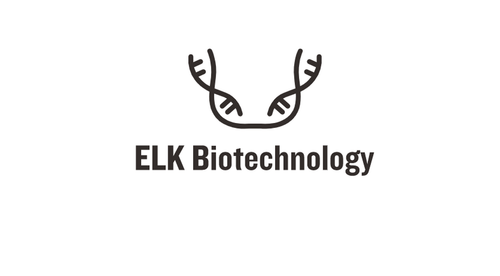Product Description
Human Protocadherin beta-16 (PCDHB16) ELISA Kit | AE28470HU | Abebio
Species Reactivity: Human (Homo sapiens)
Abbreviation: PCDHB16
Alternative Name: KIAA1621; ME1; PCDH-BETA16; PCDH3X; PCDHB8a; PCDHbeta 16|cadherin ME1|protocadherin beta 8a|protocadherin-3x
Application: ELISA
Range: 0.156-10 ng/mL
Sensitivity: 0.055 ng/mL
Intra-Assay: ≤4.6%
Inter-Assay: ≤8.4%
Recovery: 1, 06
Sample Type: Serum, Plasma, Other biological fluids
Detection Method: Sandwich
Analysis Method : Quantitive
Test Principale: This assay employs a two-site sandwich ELISA to quantitate PCDHB16 in samples. An antibody specific for PCDHB16 has been pre-coated onto a microplate. Standards and samples are pipetted into the wells and anyPCDHB16 present is bound by the immobilized antibody. After removing any unbound substances, a biotin-conjugated antibody specific for PCDHB16 is added to the wells. After washing, Streptavidin conjugated Horseradish Peroxidase (HRP) is added to the wells. Following a wash to remove any unbound avidin-enzyme reagent, a substrate solution is added to the wells and color develops in proportion to the amount of PCDHB16 bound in the initial step. The color development is stopped and the intensity of the color is measured.
Product Overview: PCDHb16 is a member of the protocadherin beta gene cluster, one of three related gene clusters tandemly linked on chromosome five. The gene clusters demonstrate an unusual genomic organization similar to that of B-cell and T-cell receptor gene clusters. The beta cluster contains 16 genes and 3 pseudogenes, each encoding 6 extracellular cadherin domains and a cytoplasmic tail that deviates from others in the cadherin superfamily. The extracellular domains interact in a homophilic manner to specify differential cell-cell connections. Unlike the alpha and gamma clusters, the transcripts from these genes are made up of only one large exon, not sharing common 3' exons as expected. These neural cadherin-like cell adhesion proteins are integral plasma membrane proteins.
Stability: The stability of ELISA kit is determined by the loss rate of activity. The loss rate of this kit is less than 5% within the expiration date under appropriate storage condition. The loss rate was determined by accelerated thermal degradation test. Keep the kit at 37°C for 4 and 7 days, and compare O.D.values of the kit kept at 37°C with that of at recommended temperature. (referring from China Biological Products Standard, which was calculated by the Arrhenius equation. For ELISA kit, 4 days storage at 37°C can be considered as 6 months at 2 - 8°C, which means 7 days at 37°C equaling 12 months at 2 - 8°C) .
 Euro
Euro
 USD
USD
 British Pound
British Pound
 NULL
NULL








